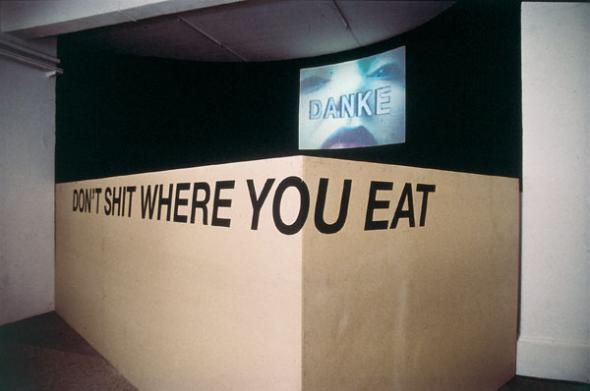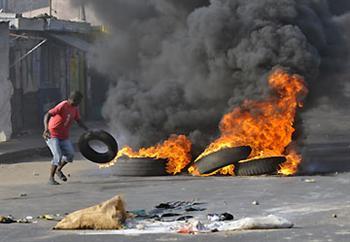no Auditório do Grupo Musical de Miragaia
4 de Setembro a 1 de Outubro de 2010
Programação de José Maia
1ª sessão
África _ já ali
Sábado, 4 de Set. de 2010
21h30 _ As estátuas também morrem, Alain Resnais e Chris Marker
22h00 _África, Paraíso e Inferno Werner Herzog
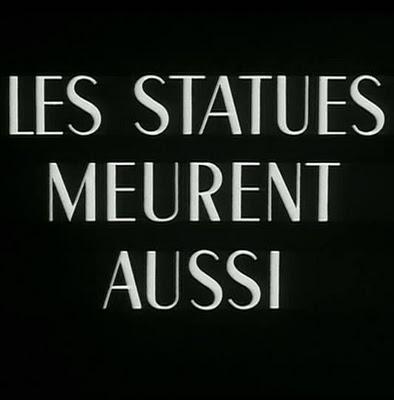
As estátuas também morrem, (Les Statues Meurent Aussi), 1953, 29`
Alain Resnais e Chris Marker
“Este filme-colagem, tido por fundador de um género de documentário a que se chamou “ensaio cinematográfico”, surge num período de violentas tensões políticas e resulta num delicado revelador deste mundo em transformação.
(…)
As estátuas também morrem, trata do desentendimento entre o homem branco e o homem negro, detendo-se nos equívocos e na violência que a presença dos artefactos africanos nos museus europeus (tanto quanto a sua ausência do Louvre, o mais nobre desses museus) desvenda.”
(…)
Em As estátuas também morrem, o ânimo da cultura africana é o rosto da morte do imperialismo europeu (…) “Um objecto está morto quando o olhar vivo que pousava sobre ele, desapareceu. E quando nós desaparecermos, os nosso objectos irão para onde nós enviamos os dos negros: para o museu.”
João Sousa Cardoso In texto de sala da 1ª sessão

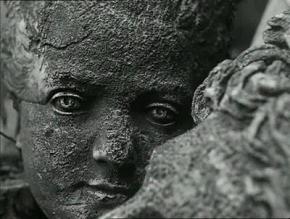
África, Paraíso e Inferno (Fata Morgana), 1971, 79
Werner Herzog
“Fata Morgana surge na vaga do Novo Cinema Alemão, protagonizada por cineastas de esquerda (Rainer Werner Fassbinder, Werner Herzog, Wim Wenders e Werner Schroeter, entre outros) que, a partir dos anos 60, procuraram estabelecer uma renovada cultura na Alemanha Ocidental, com manifesto repúdio pelo passado nazi. (…)
A promessa da sequência de abertura do filme em que, por 8 vezes, assistimos à aterragem de um avião, repetição que nos faz aí compreender uma crítica mordaz à abrupta imposição do colonialismo em África, no embalo do ritmo industrial e no sentimento do homem branco como providência (…)
São evocadas as várias formas de destruição e de opressão étnica, aproximando o anti-semitismo nazi e o racismo colonialista, a história política e a militância ecologista.”
João Sousa Cardoso In texto de sala da 1ª sessão
Segunda-feira, 6 de Set. de 2010
1ª parte
África 50,
(Afrique 50) 1947, 20`
René Vautier
2ª parte Apontamentos para uma Oréstia Africana, (Appunti per un’Orestiade Africana) 1970, 75`
Pier Paolo Pasolini
3ª sessão _ Sábado, 11 de Set. de 2010
1ª parte
Os Mestres Loucos,
(Les Maitres Fous), 1955, 28`
Jean Rouch
2ª parte
Eu, um Negro,
(Moi, un Noir), 1958, 72`
Jean Rouch
4ª sessão _ Segunda-feira, 13 de Set. de 2010
1ª parte
alheava_filme, 2007, 30`
Manuel Santos Maia
2ª parte
A Costa dos Murmúrios, 2004, 115`
Margarida Cardoso
5ª sessão _ Sábado, 18 de Set. de 2010
Non, ou a Vã Gloria de Mandar, 1990, 110`
Manoel de Oliveira
6ª sessão _ Segunda-feira, 20 de Set. de 2010
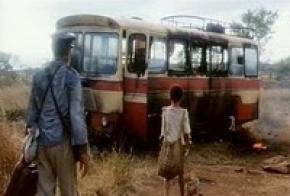
Terra Sonâmbula, 2007, 98`
Teresa Prata
7ª sessão _ Sábado, 25 de Set. de 2010
Casa de Lava, 1994, 110`
Pedro Costa
8ª sessão _ Segunda-feira, 27 de Set. de 2010
Bab Sebta, 2008, 110`
Frederico Lobo e Pedro Pinho
9ª sessão _ sexta-feira, 1 de Out. de 2010
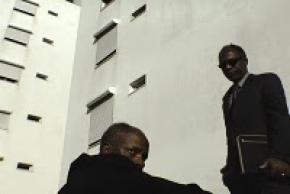 Juventude em Marcha, 2006, 155`
Juventude em Marcha, 2006, 155`
Pedro Costa
O ciclo África_já ali
Pelo olhar e pensamento de realizadores europeus de diferentes gerações, com obras de ficção, etno-ficção e documentais iremos ver, (re)conhecer e reflectir como o ocidente representou e representa, pensou e pensa África.
As obras que serão apresentadas neste ciclo compreendem diferentes enquadramentos históricos, políticos, sociais e culturais permitindo-nos pensar:
Nós, o Outro e a relação entre Ocidente e África na cultura ocidental e na cultura africana pelas obras de Alain Resnais e Chris Marker, Werner Herzog, Pier Paolo Pasolini;
o ocidente em África no período de colonização de África pela primeira obra cinematográfica de reflexão crítica ao colonialismo África 50 de René Vautier e pelas obras de Jean Rouch e Pier Paolo Pasolini;
o confronto com o olhar africano sobre o europeu e como e quanto europeu é o africano colonizado pela obra Jean Rouch;
a colonização portuguesa, a Guerra Colonial o fim do Império e descolonização pela obras de Manoel de Oliveira, Manuel Santos Maia e Margarida Cardoso;
África Hoje, após independências e o surgimento das novas nações africanas numa viagem falada em português de Moçambique à “Terra Sonâmbola” do escritor Moçambicano Mia Couto com Teresa Prata e outra em crioulo, que também tem base lexical portuguesa, até à “Casa de Lava” de Pedro Costa, em Cabo Verde;
os fluxos migratórios africanos do norte de África para a Europa e a emigração cabo-verdiana para Portugal serão verificados por Frederico Lobo e de Pedro Pinho e por Pedro Costa;
África em Portugal, Hoje verificada pela presença de africanos, de portugueses africanos e de africanos portugueses, resultado dos vários processos de migração de uma “Juventude em Marcha” para Portugal;
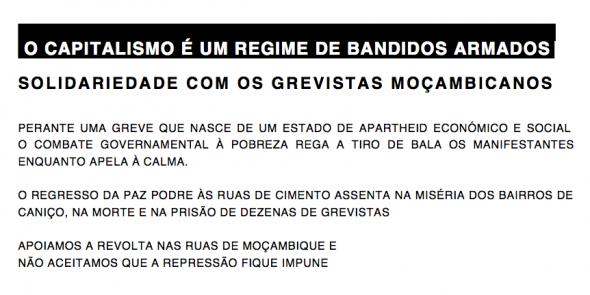
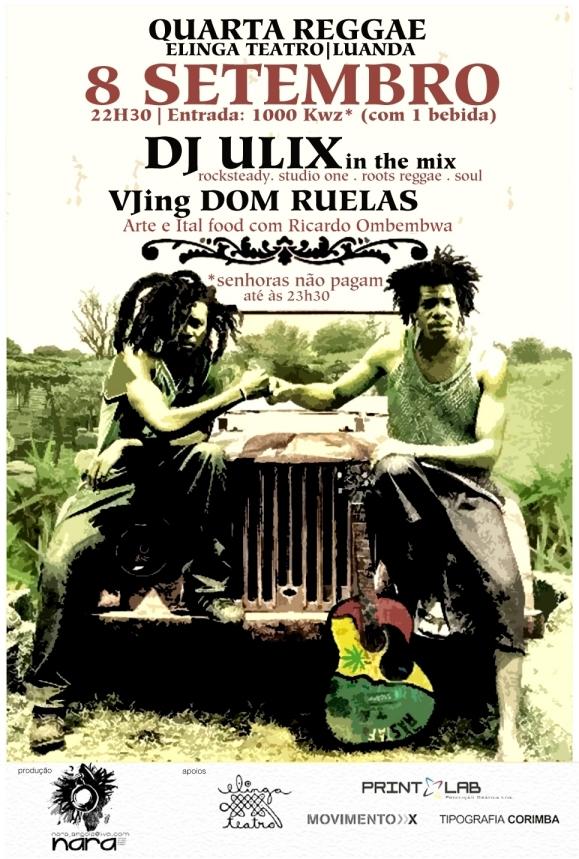
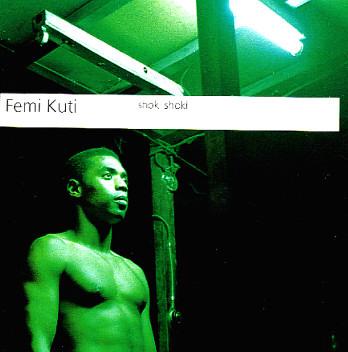
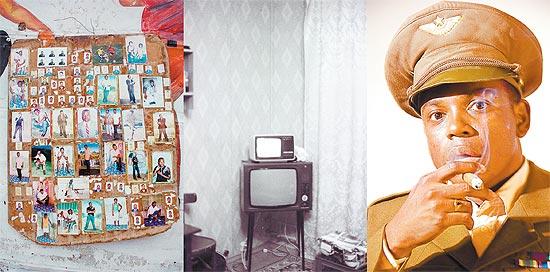 Uma enorme barragem bloqueia a vista da baía de Luanda. Tratores estão aterrando o mar para alargar uma avenida da cidade. Lufadas de pó vermelho sublinham a cacofonia de britadeiras, guindastes e apitos.
Uma enorme barragem bloqueia a vista da baía de Luanda. Tratores estão aterrando o mar para alargar uma avenida da cidade. Lufadas de pó vermelho sublinham a cacofonia de britadeiras, guindastes e apitos.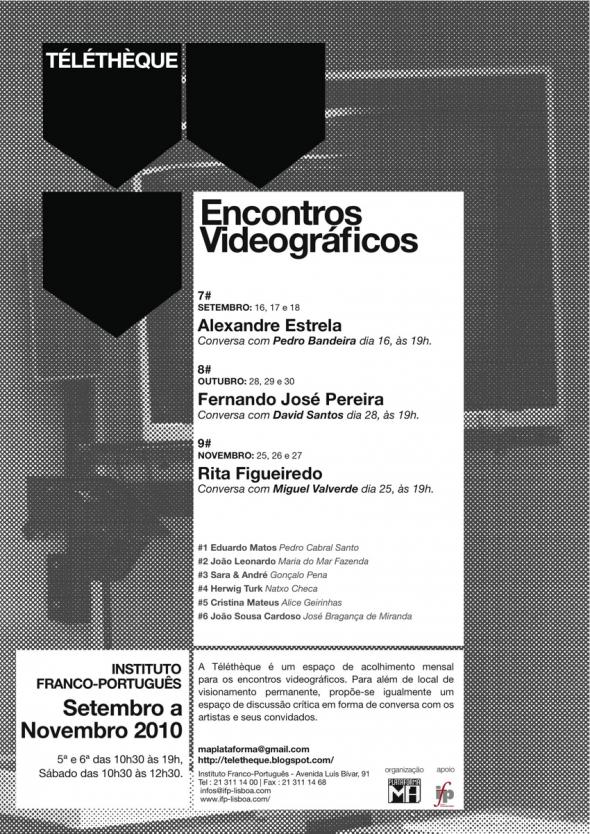
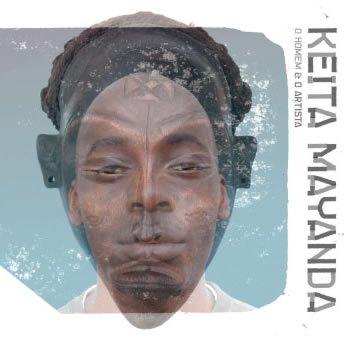
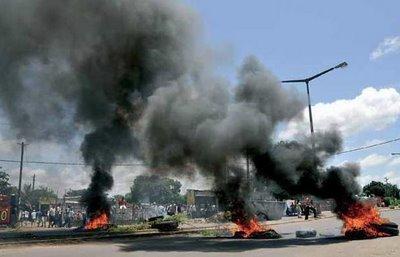
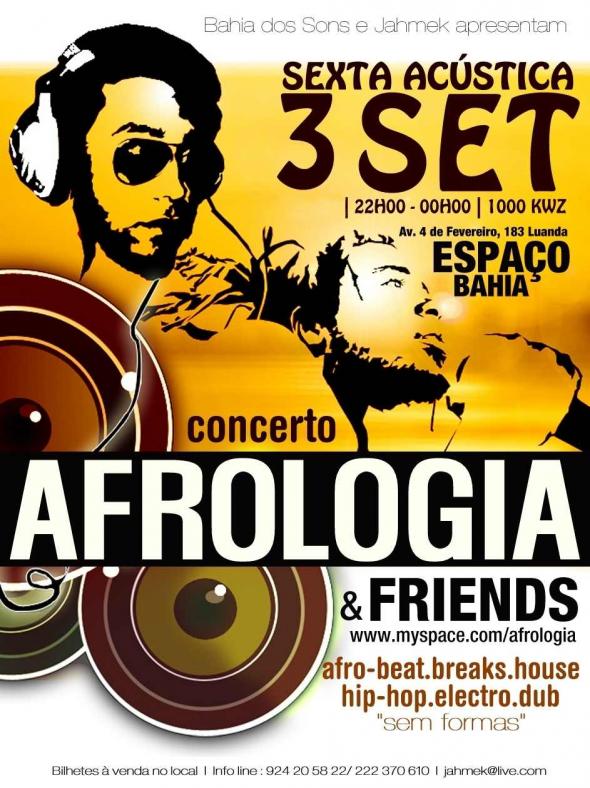
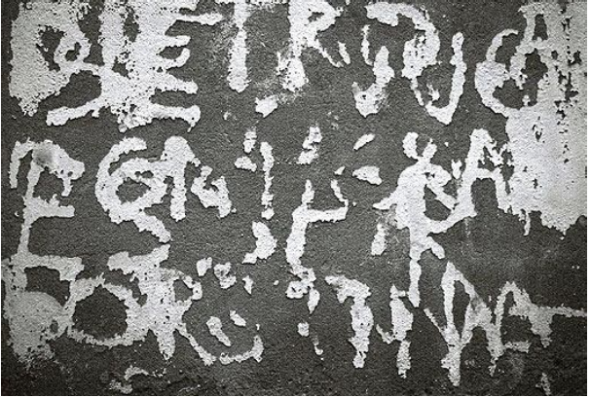 ‘NOISE | RUÍDO’ gira à volta da noção de ruído. O ruído de fundo de uma cidade em convulsão (Luanda? Lisboa?), o barulho das ruas, da construção massiva e do tráfego, mas também o ruído visual e, acima de tudo, o ruído na comunicação.
‘NOISE | RUÍDO’ gira à volta da noção de ruído. O ruído de fundo de uma cidade em convulsão (Luanda? Lisboa?), o barulho das ruas, da construção massiva e do tráfego, mas também o ruído visual e, acima de tudo, o ruído na comunicação. 




 Juventude em Marcha
Juventude em Marcha NE CHANGE RIEN, de Pedro Costa, inaugura o programa do Festival All Tomorrow’s Parties, comissariado por Jim Jarmusch, em Nova Iorque, nos Estados Unidos, na próxima sexta-feira. O filme estreará a 3 de Novembro nos Estados Unidos, em Nova Iorque, Los Angeles, Seattle, Chicago e Boston. O cineasta é também homenageado no Brasil, onde o Centro Cultural Banco do Brasil, uma das mais prestigiadas instituições de divulgação cultural, apresenta este mês uma retrospectiva da sua obra em São Paulo, no Rio de Janeiro e em Brasília.
NE CHANGE RIEN, de Pedro Costa, inaugura o programa do Festival All Tomorrow’s Parties, comissariado por Jim Jarmusch, em Nova Iorque, nos Estados Unidos, na próxima sexta-feira. O filme estreará a 3 de Novembro nos Estados Unidos, em Nova Iorque, Los Angeles, Seattle, Chicago e Boston. O cineasta é também homenageado no Brasil, onde o Centro Cultural Banco do Brasil, uma das mais prestigiadas instituições de divulgação cultural, apresenta este mês uma retrospectiva da sua obra em São Paulo, no Rio de Janeiro e em Brasília.